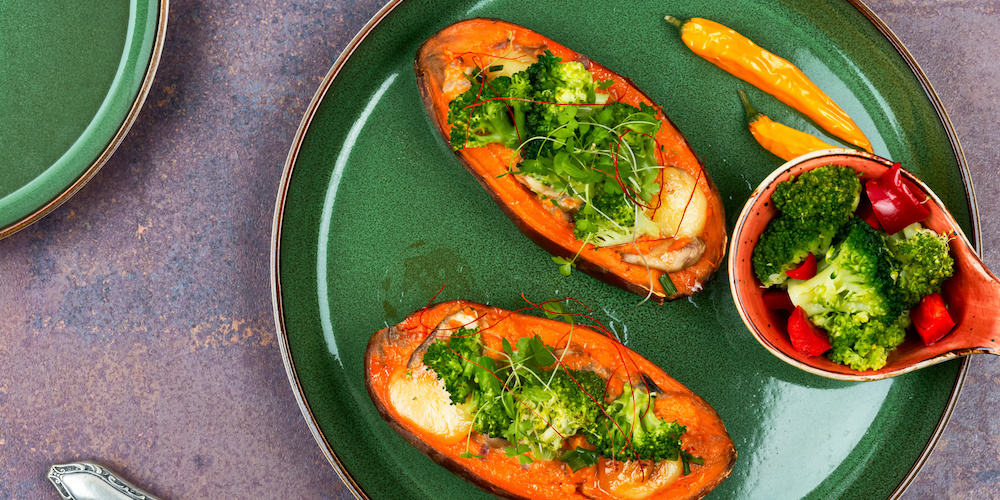Gastritis is an inflammation of the stomach’s inner lining. It causes many unpleasant symptoms: abdominal pain, heartburn, bloating, vomiting.
Its causes are just as numerous: severe stress, excessive alcohol consumption, tobacco, certain medications, bile reflux, or conditions such as Biermer’s disease.
But in 90% of cases, infection with Helicobacter pylori is responsible. This colonizing bacterium shows wide geographical variation, and affects 15 to 30% of the French population.
And the risk appears to increase with age! To treat gastritis, various medications are generally prescribed depending on its form, acute or chronic, and its origin.
Dietary and hygienic measures are equally essential to relieve inflammation and prevent possible complications like ulcers and stomach cancer. Here I list the essential foods to fight gastritis.
1. Seeds
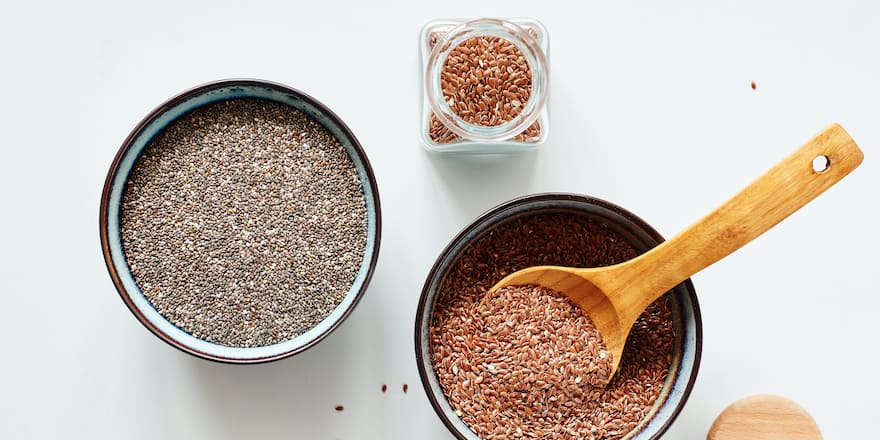
As sources of omega-3, seeds are also rich in mucilages. These soluble fibers swell on contact with water to form a viscous gel that is particularly soothing in cases of gastritis.
The flax seeds, chia seeds, psyllium or even sprouted mustard or basil seeds are particularly anti-inflammatory and recommended.
You can add seeds once a day to your dishes, your yogurts, or your drinks.
📚 Read also | Everything you need to know before buying psyllium
2. Fatty fish
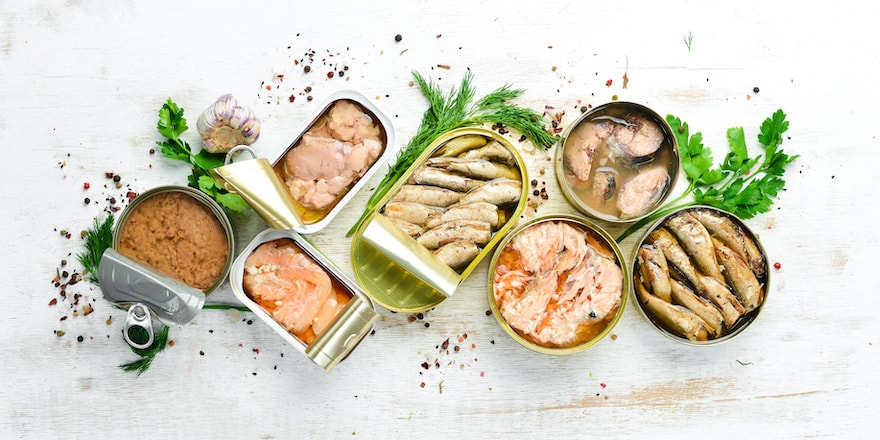
Among omega-3-rich and antioxidant foods, fatty fish are a very good choice.
I recommend eating them twice a week. Cook to your taste sardines, mackerel, trout, or tuna, or place them on a slice of whole-grain bread with lemon.
📚 Read also | A pharmacist selected the 3 best omega-3 supplements
3. Nuts and oilseeds
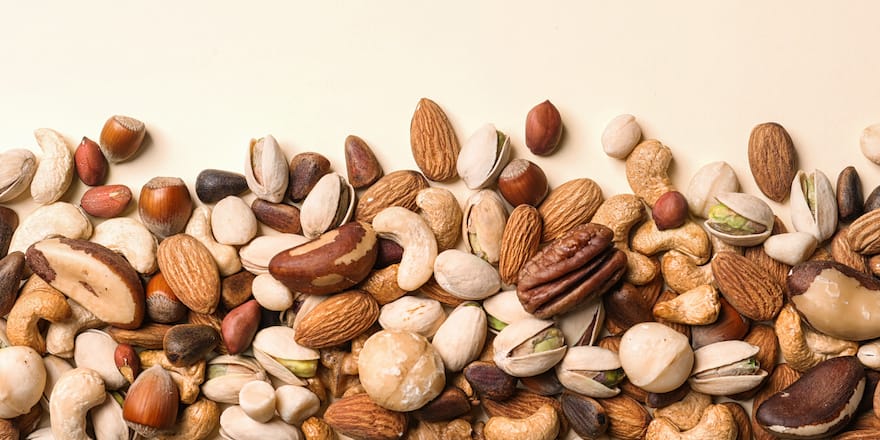
So-called ‘fatty fruits’ are excellent foods for stomach pain. I recommend nuts (cashews, pecans, macadamia), hazelnuts, almonds, peanuts…
Rich in vitamin E, zinc, copper and omega-3s, you can eat a handful of nuts per day at breakfast, for example, to start the day off right.
Also favor vegetable oils such as olive oil, walnut oil, canola oil, or flaxseed oil.
For the same reasons, you can also include in your meals half an avocado per day.
🎧 Listen to the podcast | Fat: Is it life?
4. Turmeric
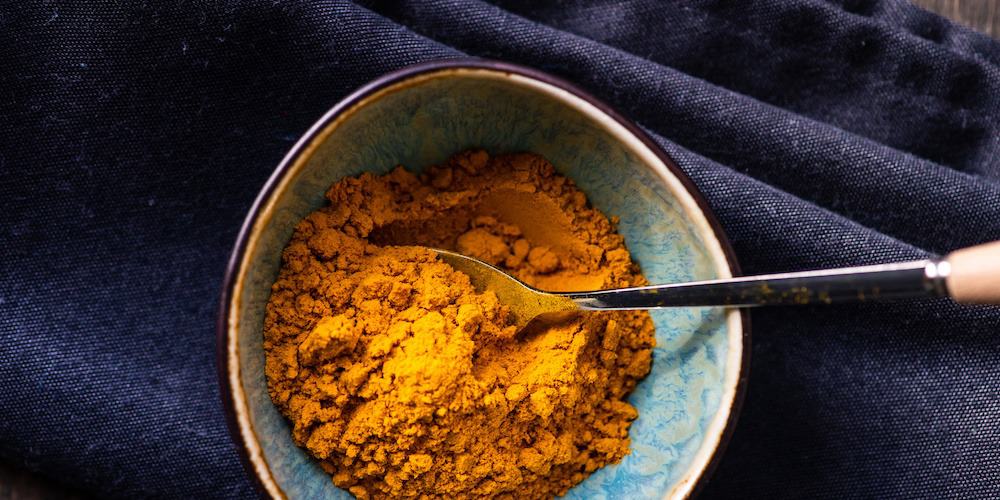
Turmeric is a spice with anti-inflammatory properties that may help combat gastritis pain.
Curcumin, its active molecule, prevents heartburn and protects mucous membranes. It is studied for its anti-tumor activity in cases of gastrointestinal cancer.
It’s really easy to add it to your diet. Regularly season your dishes (vegetables, meats, fish…) using a teaspoon of turmeric and a pinch of black pepper to better absorb curcumin.
📚 Also read | How to choose the best curcumin
5. Broccoli
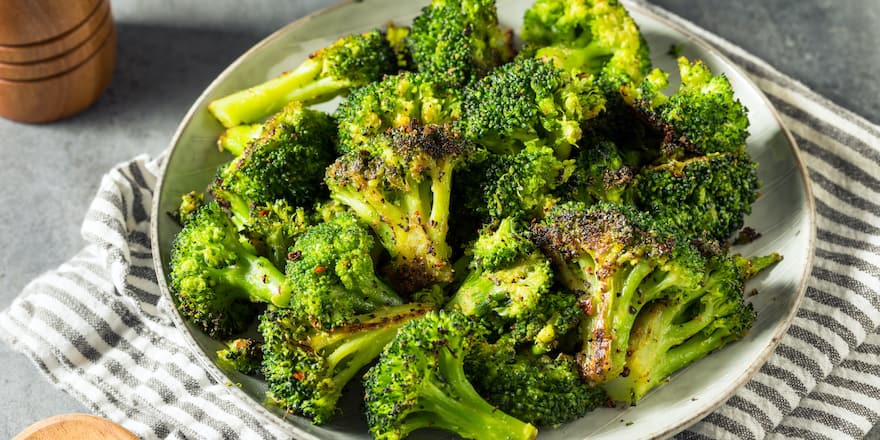
A true health food, broccoli is known for its effectiveness against Helicobacter pylori.
Several studies have demonstrated its antibiotic action thanks to isothiocyanates, including sulforaphane, a powerful antioxidant.
I recommend adding it to your menu two to three times a week. Preferably cook steamed broccoli to benefit from its effects.
6. Gentle fibers
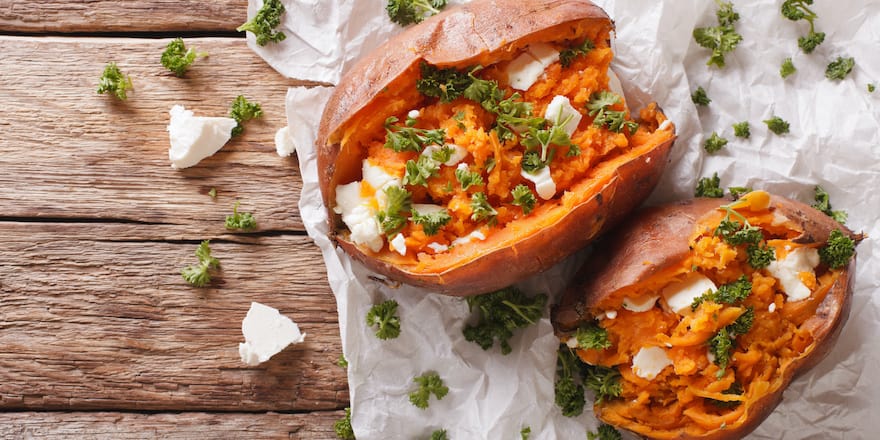
Some fruits and vegetables easy to digest by the body are preferable to others.
Apple, banana, carrot, whether raw or cooked, zucchini and sweet potato are ideal when the stomach is sensitive.
Vary them with delicious recipes so you don’t get tired of them: mashed for savory dishes, as compote for sweet ones.
7. Aloe vera
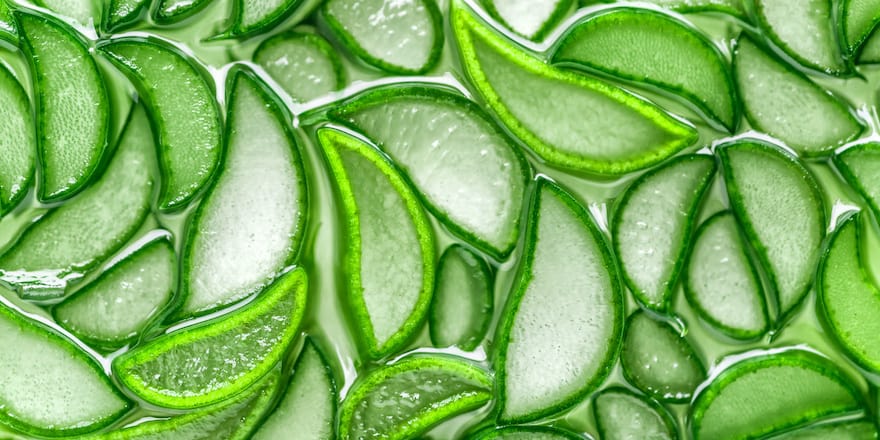
A member of the cactus family, aloe vera is a plant with countless benefits : anti-regurgitation, anti-stress, anti-acid, restorative…
It comes in several forms, but I recommend choosing the liquid form with the aloe vera pulp derived from its leaves.
You can take a two-week aloe vera course, with one 30 ml dose before lunch or two 15 ml doses before each main meal. You will notice the difference quickly.
Repeat if necessary two to three times a year at the first signs of digestive discomfort.
8. Bicarbonate-rich waters

To reduce gastric acidity and regulate the body’s pH, you can turn to sparkling waters. I recommend varying the waters throughout the day.
After a workout, for example, you can drink two large glasses of bicarbonate-rich water such as Rozana, Vichy-St-Celestin, St-Yorre or Badoit.
9. Herbal teas and infusions

Chamomile, licorice, peppermint and ginger have soothing and bactericidal properties. These plants protect the digestive system.
While avoiding drinking liquids that are too hot to prevent irritation, prepare two cups of herbal infusion per day from those I suggest, either single-ingredient or mixed.
My nutritional advice for gastritis
Conversely, some foods should be avoided in case of gastritis:
- Strong spices like chili pepper
- Acidifying foods like refined cereals, fruit juices, vinegar
- Sugary products: candies, confections, sugary drinks
- Salt and very salty foods like cured meats, cheeses
- Cooked fats and fatty foods in excess
- Coffee, tea and chocolate
- Alcoholic beverages
What you should remember is that anything that can irritate the digestive system and slow gastric emptying is strongly discouraged, always taking your individual tolerances into account.
During this recovery period, pamper your stomach by favoring small, regular meals rather than overly large ones. Also avoid keeping your stomach empty for long hours so as not to further stimulate gastric juices
Finally, don’t forget that your well-being is holistic. Try to reduce your stress by prioritizing good sleep, regular exercise, and gentle activities (reading, meditation, yoga…). If you smoke, reduce your tobacco consumption.
As for self-medication, it can be clumsy and harmful. I invite you instead to follow your doctor’s advice.


